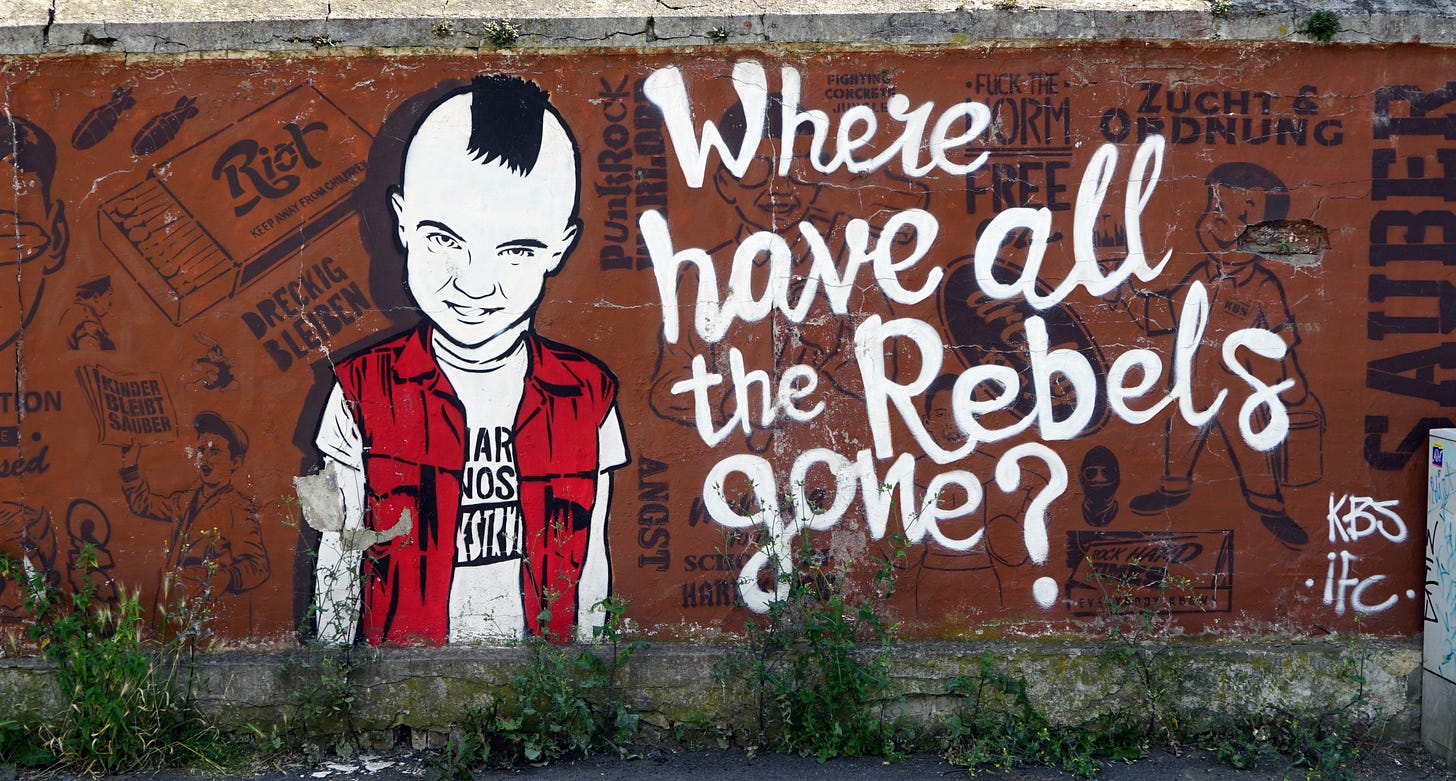It’s pretty much broken.
That’s my considered opinion.
Broken.

It’s not that the world is ending. It isn’t. But at the same time, it feels like it is. We were promised something else. We were promised a digital paradise.
Twenty years ago, the dot-com bubble burst.
We witnessed the peak of inflated expectations: the Web was about to transform the world completely, and then there was a sudden disillusionment: it wasn’t changing anything.
Twenty years later, we are much wiser, right?
Wrong! We might have much more sophisticated digital tools in our hands now, but we’re just as hopeless at using them. According to the World Economic Forum, only 1% of digital transformation efforts in 2018 were going to achieve their goals, with more than US$1.2 trillion spent on these efforts. How can anyone be so bad at doing their job?
Twenty years is a lot of time.
Most of the digital giants of today were either too young to learn anything from the dot-com bubble burst or were born after it. Facebook is now 16 years old. It is a prodigy kid that everyone admired, now experimenting with drugs and alcohol in its teenage years, thrashing cars on the way back from a party. Google, 22, changed its name to Alphabet, cut its hair, put the Doc Martens in the closet and started working for a tobacco company (or defence manufacturers, same thing). Its parents, Sergey and Larry, retired. They might call once a week, but that’s it: the kid is out of the house. Uber has turned eleven: it’s now old enough to understand that it’s not ok to abuse drivers, but it still thinks money comes from a hole in the wall. The few survivors of the dot-com burst, Apple, Amazon, and Microsoft focus on what most adults focus on: avoiding taxes, politics, and preparing for retirement.

Alibaba, Alphabet, Amazon, Apple, Facebook, Microsoft, and Tencent. Seven out of ten largest public corporations by market capitalisation now hire more engineers than the entire NASA program in its Apollo glory days. And what do most of their engineers focus on? Making sure we click an ad. Trying to keep us longer on their sites. Selling us another useless in-app purchase.
In a broken dream
In 1995, John Perry Barlow wrote a Declaration of Independence of Cyberspace. In it, he shared the views of many of us at that time.
“We are creating a world that all may enter without privilege or prejudice accorded by race, economic power, military force, or station of birth…a world where anyone, anywhere may express his or her beliefs, no matter how singular, without fear of being coerced into silence or conformity…Your legal concepts of property, expression, identity, movement, and context do not apply to us. They are all based on matter, and there is no matter here.”
I was a teenager then, finishing high school, spending hours a day with a 28800bps modem hooked to my i486SX machine with 4MB of RAM, speaking Hayes AT commands, sysoping a BBS, and leaving my computer on at night as a node of FidoNet (2:481/41), before the Internet became widely available where I grew up. Back then, we were all excited about the potential of the change that was coming. We knew how much the world was going to change. Yet, we had no idea how much the world was going to change.
Not everyone shared our ideals.
In 2004, 19-year old Mark Zuckerberg wrote a message to his friend, shortly after launching The Facebook:
Zuck: Yeah so if you ever need info about anyone at Harvard
Zuck: Just ask.
Zuck: I have over 4,000 emails, pictures, addresses, SNS
(Redacted Friend’s Name): What? How’d you manage that one?
Zuck: People just submitted it.
Zuck: I don’t know why.
Zuck: They “trust me”
Zuck: Dumb fucks.
Fifteen years later, now in a conversation with congressmen and congresswomen, Mark Zuckerberg said: “I think lying is bad. I think if you were to run an ad that had a lie, that would be bad.” These are the words of a person who holds the keys to one of the most powerful tools the humanity has ever had. A tool connecting billions of individuals, changing how politics plays out, conflicts develop, and extremist groups operate.
Back in 1996, I would leave my computer on, before going to sleep, and hope that people would dial-in to send messages for others. They did. My machine would forward to other nodes around the world a few hours later. Every night. We were all in it; we invested our time, passion, energy to build the networks that run the world today. It hurts to see when the networks are misused.
Sometimes dreams come true
It would be unfair if I only wrote about the negatives. The digital world has transformed our lives in unimaginable ways. Some people say that we were promised “The Jetsons”, and all we got is “The Flintstones”. They are wrong. Almost every aspect of our lives has changed almost beyond recognition over the past twenty years. Artificial intelligence systems are now helping doctors keep us healthy, and networked games are helping autistic children, veterans and elderly make new friends and cope with loneliness. Robots let bed-bound patients work in cafes and interact with customers. Micro-lending, crowd-sourcing, and service platforms are allowing individuals to build thriving businesses.
The global village that is the XXI century has empowered so many of us. It is not a superpower if you cannot use it for evil purposes, someone said. It is our collective responsibility to ensure that the superpower, which we have in our hands, isn’t used for evil.



